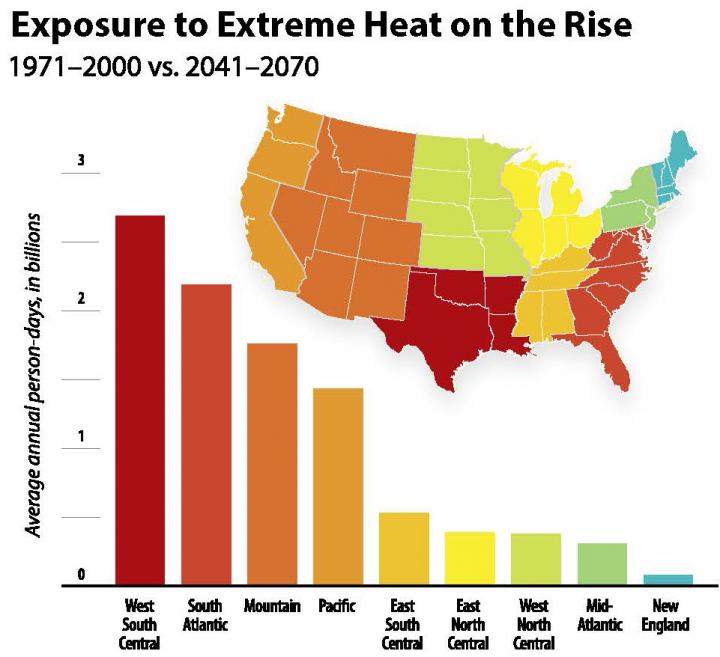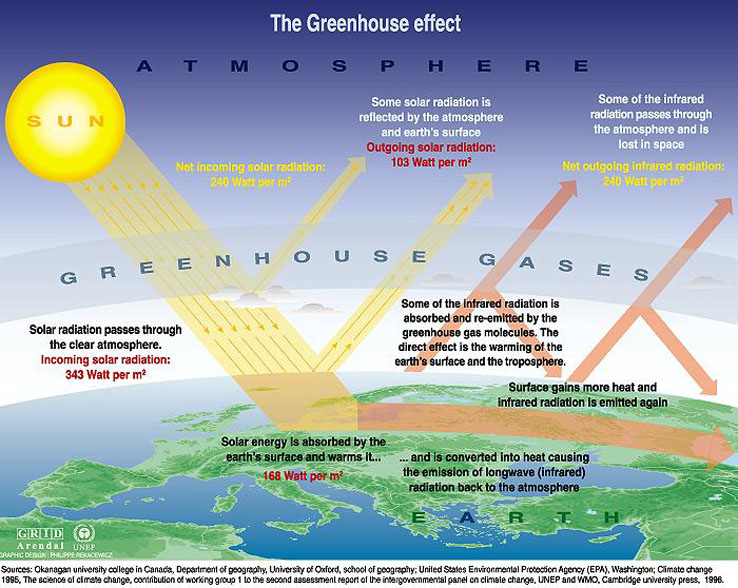Continued warming of the world’s oceans may trigger disruptions to marine life not seen in 3 million years, according to a new study published Monday in the journal Nature Climate Change. The study, put forth by scientists from the University of Science and Technology in Lille, France, and other institutions, aims to put the anticipated ecological crisis in historic perspective. Among the foreseen …
GMH: Genetically Modified Humans?
In addition to the ethical questions and the serious unintended health consequences, this would also open the door to patenting human DNA. Action Alert! Late last month, a group of Chinese scientists published a study that tried to answer the question, “Is it possible to edit the genetic makeup of human embryos?” It’s a question that has occupied scientists and medical researchers for …
Exposure of US population to extreme heat could quadruple by mid-century
U.S. residents’ exposure to extreme heat could increase four- to six-fold by mid-century, due to both a warming climate and a population that’s growing especially fast in the hottest regions of the country, according to new research. The study, by researchers at the National Center for Atmospheric Research (NCAR) and the City University of New York (CUNY), highlights the importance …
Cut pesticide use to boost yields? It’s worked for millions of farmers in Asia and Africa – Jules Pretty and Zareen Pervez Bharucha
Pesticides are intended to be harmful. They kill pests, diseases and weeds. But some also harm humans and wildlife. Pesticides are a huge global business, worth around US$45 billion. Each year, 3.5 billion kilogrammes of pesticides are applied to food crops and their use is growing. Much use of this use is at best ineffective and at worst outright harmful. In recent …
Hotter and Wetter: Report Finds Global Warming Driving Extreme Weather – Lauren McCauley
It’s not just your imagination. The punishing heat waves, record snowfall, and 500-year floods, which seem to be occurring with increasing frequency, are doing just that, thanks to global warming. According to a study (pdf) published Monday in the journal Nature Climate Change, these extreme weather events are clearly attributed to human-induced climate change and will only worsen as average temperatures tick higher …
World’s first genetically modified human embryo raises ethical concern – by Hannah Brown
The genetic modification of humans make many people feel very uncomfortable. Credit: Tatiana Vdb/Manuel/Flickr, CC BY It all started with a rumour. Then just six weeks ago, a warning rang out in the scientific journal Nature, expressing “grave concerns regarding the ethical and safety implications” of creating the world’s first genetically-modified human embryo. Then last week, a Chinese group from Sun Yat-sen …
50% of the World’s Wildlife Gone in Just 2 Human Generations
Anyone accustomed to Openhand knows that our approach is to fearlessly embrace the truth, even if that makes us unpopular. Why? Because only the truth can truly set you free. There’s so much deception and distortion abound on the planet. We must intuit and feel for ourselves the true landscape and where this is all really heading. For only then, may we …
New Studies Add to Growing Evidence That Notorious Pesticides Harm Bees – Nadia Prupis
Two new studies published in Nature on Wednesday show that neonicotinoid pesticides—or neonics for short—may be even more harmful to bees than previously thought. Those studies, Bees Prefer Foods Containing Neonicotinoid Pesticides and Ecology: Tasteless Pesticides Affect Bees in the Field, add to the growing list of evidence that neonics are a major contributing factor to bee population decline and reinforce the case for restricting …
Inside the Wonderful World of Bee Cognition – Where We’re at Now – Felicity Muth
As I wrote about in my last post, bees are capable of learning which flowers offer good nectar rewards based on floral features such as colour, smell, shape, texture, pattern, temperature and electric charge. They do this through associative learning: learning that a ‘conditioned stimulus’ (for example, the colour yellow) is associated with an ‘unconditioned stimulus’ (nectar). Learning simple associations like …
Scientists predict gradual, prolonged permafrost greenhouse gas emissions, allowing us more time to adapt
A new scientific synthesis suggests a gradual, prolonged release of greenhouse gases from permafrost soils in Arctic and sub-Arctic regions, which may afford society more time to adapt to environmental changes, say scientists in an April 9 paper published in Nature. “Twenty years ago there was very little research about the possible rate of permafrost carbon release,” said co-author A. …








